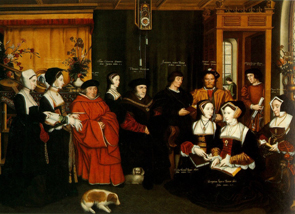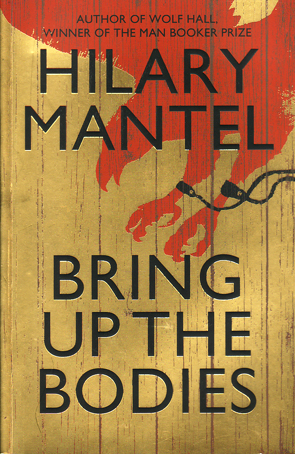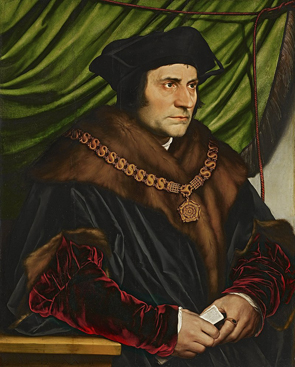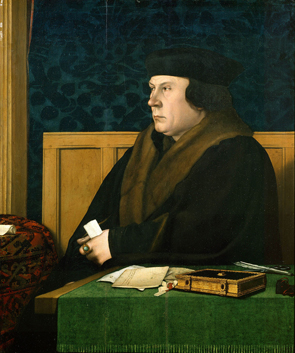I read Wolf Hall in 2009 when it was first published and have reread it over this last week as part of our series of reviews for Man Booker Prize Winners, particularly, in this case, the Golden Man Booker Prize, which is meant to represent the best of the Bookers over the first fifty years.
First, I wanted to say that I missed voting for the Golden Booker by a couple of hours. I wanted to read or reread all the books and I had other things on over the weekend. Yes, I forgot. The irony is, I think, if I am correct, that many who vote won’t have read them all and the most recent titles will most likely garner the most votes, anyway. However, if I had voted, I would probably have chosen Wolf Hall.
Of the five finalists, Wolf Hall was the most immersive for me. It helps that it is far longer than any of the other nominated novels, but the book tells a familiar story from a fresh perspective, is well written, witty and dramatizes the debate around emergent knowledge and belief which is central to much modern thinking.
The story should be familiar to many who remember high school history or have enjoyed other historical fictions set around Henry VIII of England and his wives. Henry and his Spanish wife, Katherine, after 20 years of marriage have produced a daughter, Mary, but no legitimate male heir to the throne. For Henry, this is not just a piece of vanity. He has a son, Henry Fitzroy, whom he has made a Duke, but he will never be king since Fitzroy is illegitimate. Without a legitimate heir Henry risks plunging his country into chaos, at worst, a civil war. If he suddenly dies the question of succession will be ambiguous, opening the way for Plantagenet or other claimants who may have the backing of foreign powers. The question of succession potentially touches upon the very independence of England. Henry has decided that he needs a new, younger wife to solve this problem, but his plan is blocked by Pope Clement. The Pope formerly gave Henry special dispensations to marry Katherine who was the widow to Henry’s brother, Arthur. Now, Henry’s chance for a marriage dissolution lies in a technical argument concerning consummation: did Katherine, or did she not, consummate her marriage with Arthur before he died? Katherine says she did not, which would make the marriage contract void, leaving her free to marry Henry, as she did. Henry argues she did consummate the marriage, thereby making the marriage not only legal, but Henry’s own marriage false – a legal fiction – and technically an act of incest. This would leave Henry free to marry Anne Boleyn, whom Henry hopes will provide him that elusive male heir.
This familiar story is told from the point of view of Thomas Cromwell, Henry’s right hand man. Born into poverty as the son of a blacksmith, Cromwell does not have the social graces of many in Henry’s court, but he is tenacious, intelligent and ruthless. Having seen Cardinal Wolsey, his mentor, stripped of his office and riches because of his inability to give Henry what he wants, Cromwell is determined to give Henry what he wants. Wolf Hall is the story of how Cromwell does that.
Cromwell existed in an age when society and thought were being changed by Humanist ideals, partly affected by the rise of commerce and the printing press, as well as the Reformation, the schism in the Christian church begun by Martin Luther, who challenged the church’s authority to dictate doctrine and who offered Christians new possibilities in their relationship with their religion and God. William Tyndale, the English scholar who promoted his English version of the Bible during this period, hangs in the background of Wolf Hall. Rumours of his whereabouts abound, opinions on his stand are discussed. Of course, the first official Bible in English, the King James edition of 1611, appeared long after when England had adopted Protestantism. It may be surprising to some who remember that Henry became head of his own church, thereby rejecting the authority of the Roman church, still rejected the tenets of Protestantism during most of the period covered by Wolf Hall. Henry, in fact, writes against Protestantism during this period.
That’s partly what makes this book so fascinating; this moment in history when thought is changing, things are in flux and later certainties are only just forming. At one point the Duke of Norfolk believes he has been cursed by Wolsey. Later, Henry believes he is being haunted by his dead brother. The line between the ordinary world and the supernatural is blurred. Beliefs have a powerful hold on people. Differences of opinion can be frightening. There are words to describe it: seditious; heretical. For Cromwell, this means he keeps his thoughts private, acts only when he is assured of his position and speaks nothing against the official line. But Cromwell clearly has a Protestant bent. He is a man who can boast knowing the entire New Testament off by heart. He has read Tyndale’s Bible. He knows there is a vast difference between the fiery fear-inducing proclamations poor Christians hear at church each Sunday and the mild testament of Jesus which are glossed over or ignored. Privately he wonders …where it says, in the Bible, ‘Purgatory’. Show me where it says relics, monks, nuns. Show me where it says ‘Pope’.
It is Cromwell who leads Henry to the place where he can reject Rome not just on religious but fiscal grounds. Meanwhile, Thomas More (famous for his book Utopia, but also a torturer of heretics) has written a book against Luther, for which the Pope has granted him the title of Defender of the Faith.
Until More’s incarceration later in the novel for refusing the oath on the Act of Supremacy, the legislation giving Henry control of the English church, More has never suffered a great deal in his life. He lost a wife and remarried, but Cromwell has lost not only his wife, but his daughters have died in his arms. As he makes arrangements for their burial he again reflects, Where in the Gospels does it say ‘Purgatory?’
Henry’s need to solve a personal problem, his lack of a legitimate male heir, impacts upon the political future of England, and in his struggle to overcome the strictures of the Roman church his actions impact upon its religious future, too. The various conflicts in the book form a dichotomy between those who adopt or will adopt the changing religious ideals and those who will remain intransigent. Mary, Henry’s daughter, along with her mother Katherine, will never bend. Anne Boleyn’s God is politically expedient. Henry will oppose the Pope just as Cromwell will become More’s opponent in the fight to make Henry’s solution a legal reality. Ironically, while Cromwell has kept silent about his beliefs until the times can accommodate them, it is More’s silence that will condemn him. Beyond the various political machinations and bed hopping, this is where the real drama of Wolf Hall lies. It’s what gives shape to the many dramatic episodes.
As a practitioner of fiction, Mantel is both entertaining and subtle. Much of what she writes can be enjoyed at long stretches. Yet there are subtleties in the writing too. One of the moments that made me consider this was a description of George Boleyn, Anne’s brother and now Lord Rochford. Rochford is more concerned with his appearance than the weighty matters of the compact between king and country, between husband and wife and between humanity and God. Instead:
. . . what fascinates him is the flame-coloured satin that is pulled through his slashed velvet over-sleeve. He keeps coaxing the little puffs of fabric with a fingertip, pleating and nudging them and encouraging them to grow bigger, so that he looks like one of those jugglers who run balls down their arms.
This vignette recalls the description of Cardinal Wolsey’s clothes, over seventy pages before, folded after his death:
The cardinal’s scarlet clothes now lie folded and empty. They cannot be wasted. They will cut up and become other garments. Who knows where they will get to over the years? Your eye will be taken by a crimson cushion or a patch of red on a banner or sign. You will see a glimpse of them in a man’s inner sleeve or in the flash of a whore’s petticoat.
The descriptions reminded me of the boots in All Quiet on the Western Front, a motif that highlighted the inevitable doom of each soldier who wears them. Wolsey’s clothes, cut up and recycled, are an apt metaphor for the capricious world of Henry’s England. Wolsey, once Henry’s right hand man, has paved the way for opportunist fops. Perhaps it demonstrates the dangers of not adapting to changing circumstances, too. Cromwell adapts.
An interesting question remains about Mantel’s title for her book. Wolf Hall is the home of the Seymour family where Henry meets his third wife, Jane Seymour. Jane Seymour remains a very minor character, seen here and there in the book, and is only once discussed. Yet the king never makes it to Wolf Hall in the book. It seems such a slim thing to use as the title of such a large book, given that the novel primarily follows the fortunes of Henry’s relationship with Anne Boleyn. But everyone knows what happened to Ann Boleyn. She was beheaded. Is Mantel’s title a means of reminding her readers as they read of Anne’s fate and Henry’s chequered history? To an extent. I think the title also highlights an interesting parallel, too. John Seymour has brought scandal to his home. He has had an affair with his son’s wife, Catherine Fillol, and she is pregnant. By the standards of Henry’s England, this is incest, the same fault Henry now believes taints him in the marriage to his brother’s wife, Katherine. Seymour’s affair is one of many forbidden relationships in the book. Henry intends to continue having sex with Mary Boleyn while his wife (her sister) is pregnant. Archbishop of Canterbury Cranmer, a man sworn to celibacy, is secretly married to a German Protestant and she is pregnant. Wolf Hall constantly explores the gulf between the private and public persona, whether it be sexual misconduct or religious. It is little wonder that a man of Cromwell’s intelligence plays his cards so close to his chest.
It is upon this that the drama of Thomas More finally plays out. More is willing to publicly acknowledge Henry’s marriage and his daughter, Elizabeth, but he cannot swear an oath to the Act of Supremacy, which supplants the Pope and church of Rome with Henry as the head of the English church, even if he promises not to speak against Henry or encourage others to do so. His story demonstrates the devastating intersection between thought and belief and the public persona. Like many other characters and circumstances, More has his corollary in the book in the figure of Mary Barton, a simple girl who goes about England claiming to have visions and making predictions against the King. But a simple desire for attention or the desire to maintain one’s own integrity is shown to have public implications. Like the King who must produce an heir, the private is always in the public sphere.
Wolf Hall is highly readable, compelling, dramatic and funny. It is peopled by a large number of characters from history. Mantel’s character list at the front of the novel helps delineate one set of characters from another and establish their relationships. It’s worth a read, especially since it leads into Mantel’s second novel about Cromwell, Bring Up The Bodies, which deals with Anne Boleyn’s downfall and also won the Man Booker Prize. Her third novel on Cromwell, The Mirror and the Light is due for release in 2019, although it has already been delayed from its original release date.

 RSS Feed
RSS Feed Facebook
Facebook Instagram
Instagram YouTube
YouTube Subscribe to our Newsletter
Subscribe to our Newsletter






No one has commented yet. Be the first!